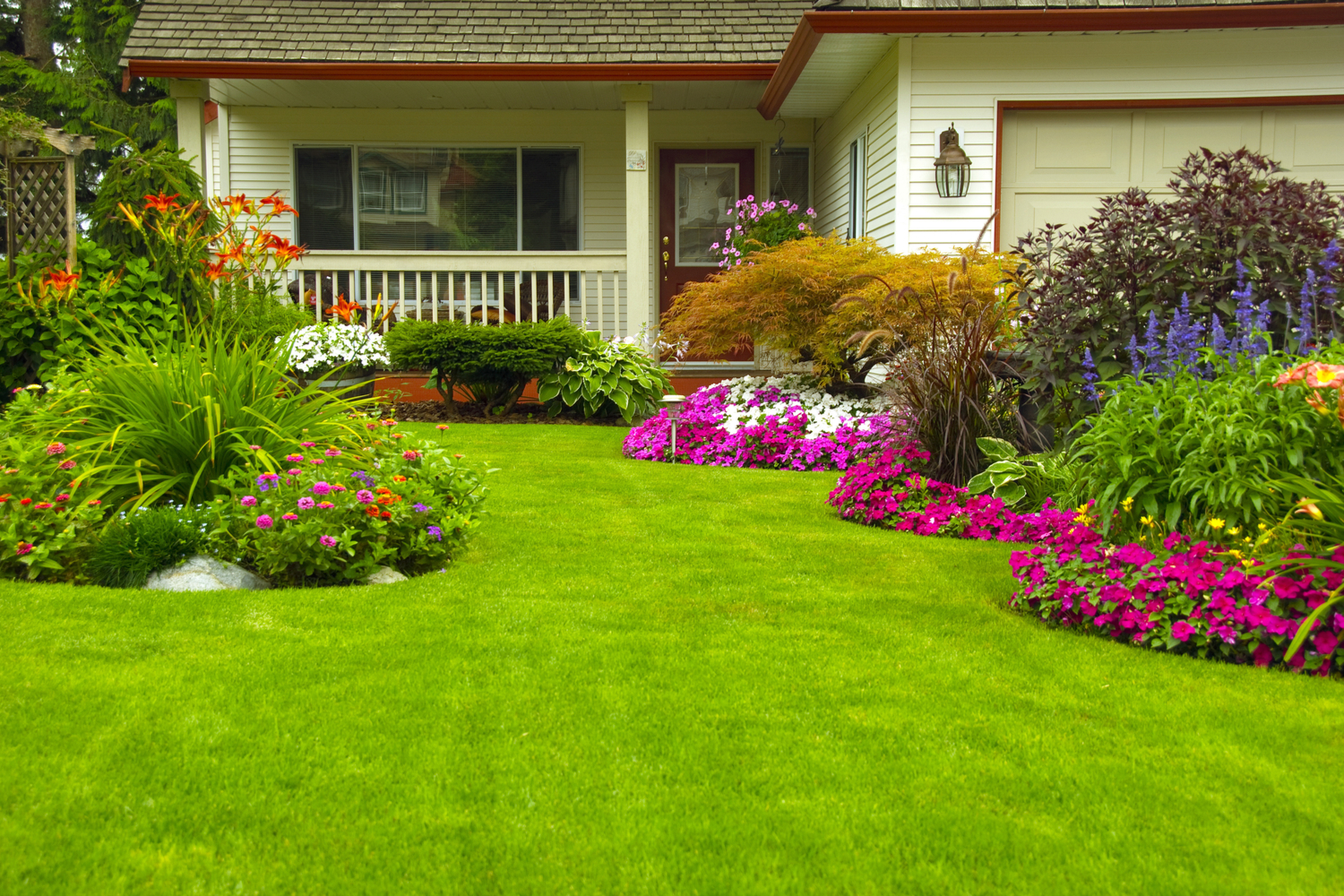
Efficient Tips for a Natural Green Lawn
A lush and green lawn doesn’t happen overnight with little work. Lawns require meticulous care if they are to be the envy of the neighbors. Repeated use of toxic chemicals destroys the macrobiotic life that exists in healthy soil. The soil would then need at least one full season to recover. The quicker the harsh chemicals are removed, the faster the soil will recover. Some natural and organic remedies to take care of the lawn include the following:
1. Use of vinegar to spot treat weeds
Household vinegar can be used to treat the lawn when only a few scattered broadleaf weeds like dandelion or plantain are present. You would not be required to spray herbicide over the entire lawn. This can be done by mixing 5 parts of white vinegar with 2 parts water and 1 part dish soap and sprayed only on the weeds with the help of a hand pump sprayer.
2. Control lawn weeds with corn gluten
Corn gluten is a non-toxic by-product of corn processing. Within days of application, corn gluten can kill the weed seedlings. By doing this, nitrogen is also added to the soil. One application alone reduces weed survival by 60%. There will be a 90% weed control if used for several years.
3. Reseed and overseed
Perennial ryegrass and drought-tolerant fescue seed mix can be used if there is a need to add seeds to cover bare spots or a thin lawn. Eco-friendly lawn seeds which are drought-tolerant and low maintenance can be used to alternately reseed the lawn.
4. Dealing with lawn grubs
Lawn grubs are the larvae of Japanese beetles. By killing the grubs, the beetles are also killed. There is an option to treat it with a natural remedy—milky spore. These are granules that need to be spread on the soil. Just one treatment is enough to keep away grubs for around 40 years.
5. Hand raking option
Hand raking is an option that can be tried if the clippings are too long and need to be raked. If there are fallen leaves to rake, it is best not to burn them as they are excellent mulch for garden beds and can be converted to rich organic humus for the garden when added to your compost pile.
6. Using conventional lawn seeds
These types of seeds were originally developed to be fast-growing to feed cattle and livestock. The eco-lawn seed is a drought-resistant blend of grass that needs very little or no mowing and no fertilizer at all. It is a versatile lawn seed where the mix helps the lawn to grow in the sun and shade and produce rich green leaf blades. It is also less vulnerable to grubs and insects.
7. Grasscycling
Leaving clippings on the lawn helps nutrients like nitrogen, phosphorous, and water to be retained and is equivalent to one application of fertilizer. Grasscycling is said to be the easiest and natural way to nurture your lawn.


